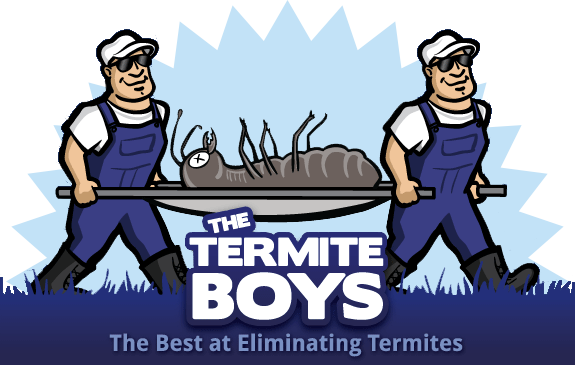Boston, known for its rich history and charming neighborhoods, is also home to an unexpected but persistent issue – termites. These tiny, destructive pests can wreak havoc on your home year-round, causing extensive damage and financial headaches. In this comprehensive guide, we’ll delve into the reasons why termites are a year-round concern for Boston homeowners and provide you with valuable insights on how to protect your property effectively.
The Relentless Boston Climate
Termites thrive in environments with consistent moisture and moderate temperatures – conditions that are prevalent in Boston throughout the year. The city’s humid summers and cold winters create the perfect habitat for termites, allowing them to remain active even in the harshest weather conditions.
Boston’s Humid Summers
Boston’s warm and humid summers provide termites with an abundance of moisture, essential for their survival. This high humidity level ensures that termites can continue to thrive, reproduce, and cause damage to homes without interruption.
Resilience during Harsh Winters
While many pests become dormant during the winter months, termites are a year-round threat in Boston. They adapt to colder temperatures by burrowing deeper into the soil or finding shelter within the warmth of homes, where they continue to feed on wood undetected.
The Allure of Boston’s Historic Architecture
Boston’s historic charm lies in its centuries-old buildings and houses, often constructed with wood. Unfortunately, this also makes the city a prime target for termite infestations. Termites are naturally drawn to wood, and Boston’s architectural heritage provides them with an abundance of food sources.
Why Termites are a Year-Round Issue for Boston Homeowners
Termites are a year-round concern for Boston homeowners due to the following reasons:
- Climate Adaptation: Termites can adapt to the varying weather conditions of Boston, remaining active throughout the year.
- Wooden Structures: Boston’s historic buildings and homes offer termites an ideal environment with ample wood to feed on.
- Hidden Activity: Termites often go unnoticed as they quietly destroy homes from the inside, making detection and prevention challenging.
- Continuous Feeding: Termites are relentless feeders, causing damage to your property 24/7, 365 days a year.
- Costly Repairs: Termite damage can lead to significant repair costs, affecting the financial well-being of homeowners.
- Health Concerns: Termite infestations can trigger allergies and respiratory issues in some individuals.
How to Protect Your Home
Protecting your Boston home from termites requires proactive measures. Here are some steps you can take:
Regular Inspections
Schedule regular termite inspections by professional pest control services. Early detection is crucial in preventing extensive damage.
Moisture Control
Address any moisture issues in your home, such as leaky pipes or improper drainage. Termites are attracted to moisture-rich environments.
Termite-Resistant Materials
Consider using termite-resistant building materials when renovating or constructing your home.
Soil Treatment
Implement soil treatment measures around your property to create a barrier against termite entry.
Professional Treatment
If an infestation is detected, consult a pest control professional to implement effective termite eradication strategies.
FAQs
Q: Can I deal with a termite infestation on my own?
A: While DIY methods may help in some cases, it’s highly recommended to consult a professional for thorough termite control.
Q: How do I know if I have a termite infestation?
A: Look for signs like discarded wings, mud tubes, or hollow-sounding wood. However, only a professional inspection can confirm an infestation.
Q: Are termite inspections costly?
A: The cost of inspections varies, but it’s a small investment compared to the potential damage termites can cause.
Q: Can termites harm my health?
A: While termites themselves are not harmful to humans, their presence can lead to mold growth, which can trigger allergies and respiratory issues.
Q: Are there eco-friendly termite control options?
A: Yes, eco-friendly and non-toxic termite control methods are available. Consult with a pest control expert for eco-conscious solutions.
Q: What is the typical cost of termite damage repairs?
A: The cost varies depending on the extent of the damage, but it can be substantial. Prevention is more cost-effective than repair.
Termites are a year-round concern for Boston homeowners, posing a threat to the city’s historic structures and your financial well-being. Understanding the reasons behind their persistence and taking proactive measures can help safeguard your home. Regular inspections, moisture control, and professional treatment are essential steps in protecting your property from these relentless pests.
Don’t let termites take a toll on your home. Stay informed, stay vigilant, and take action to keep your Boston residence termite-free.

